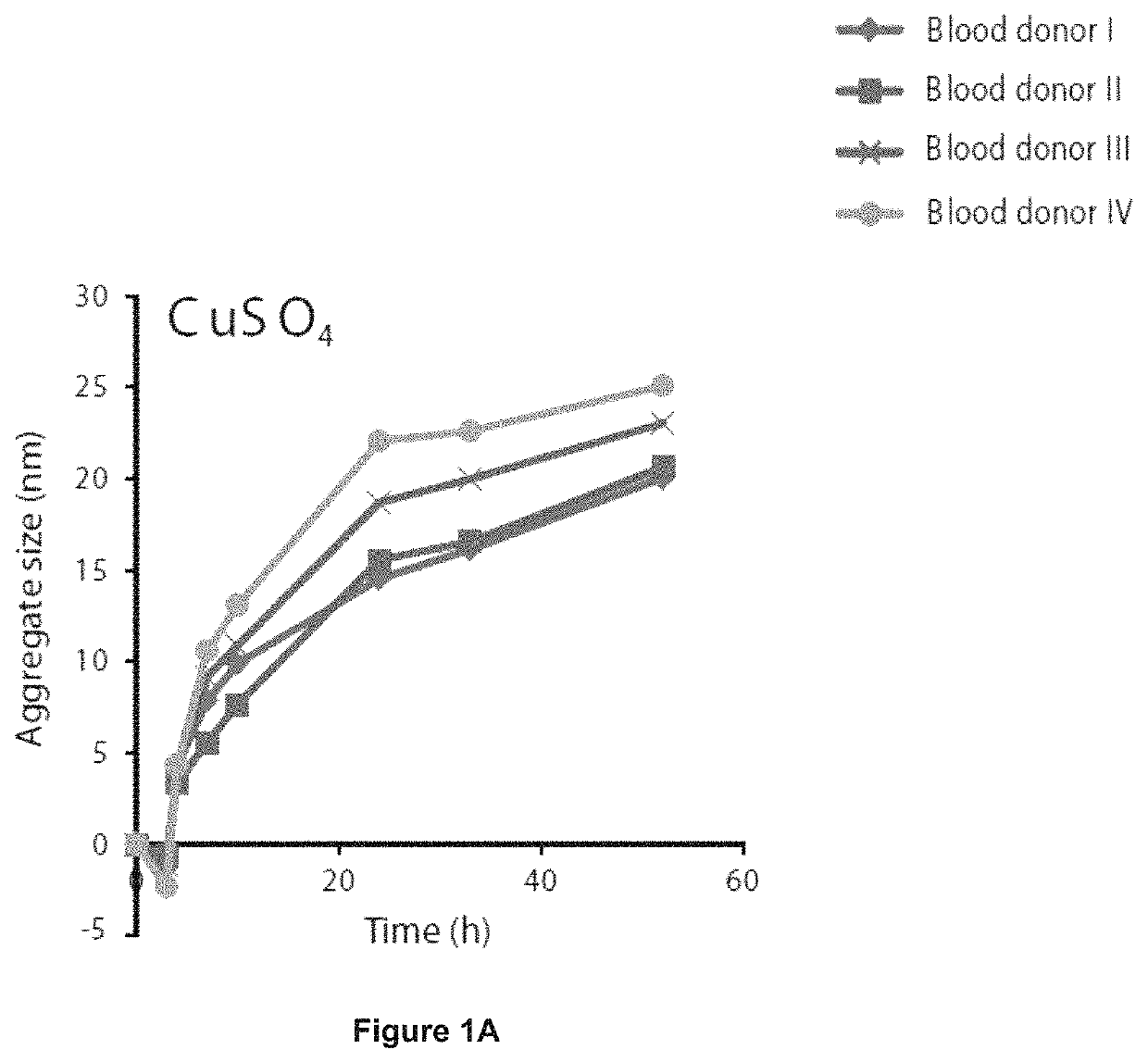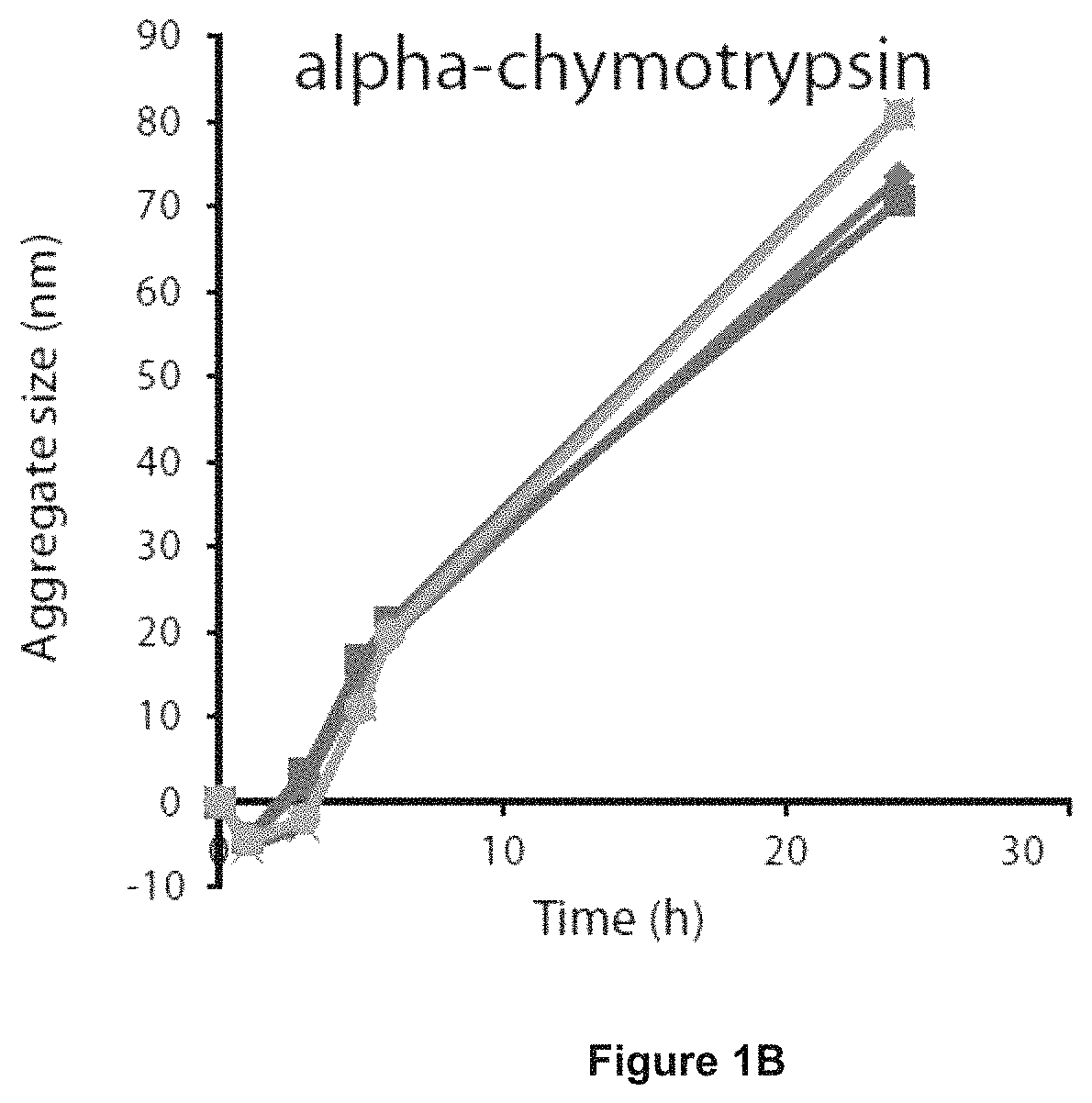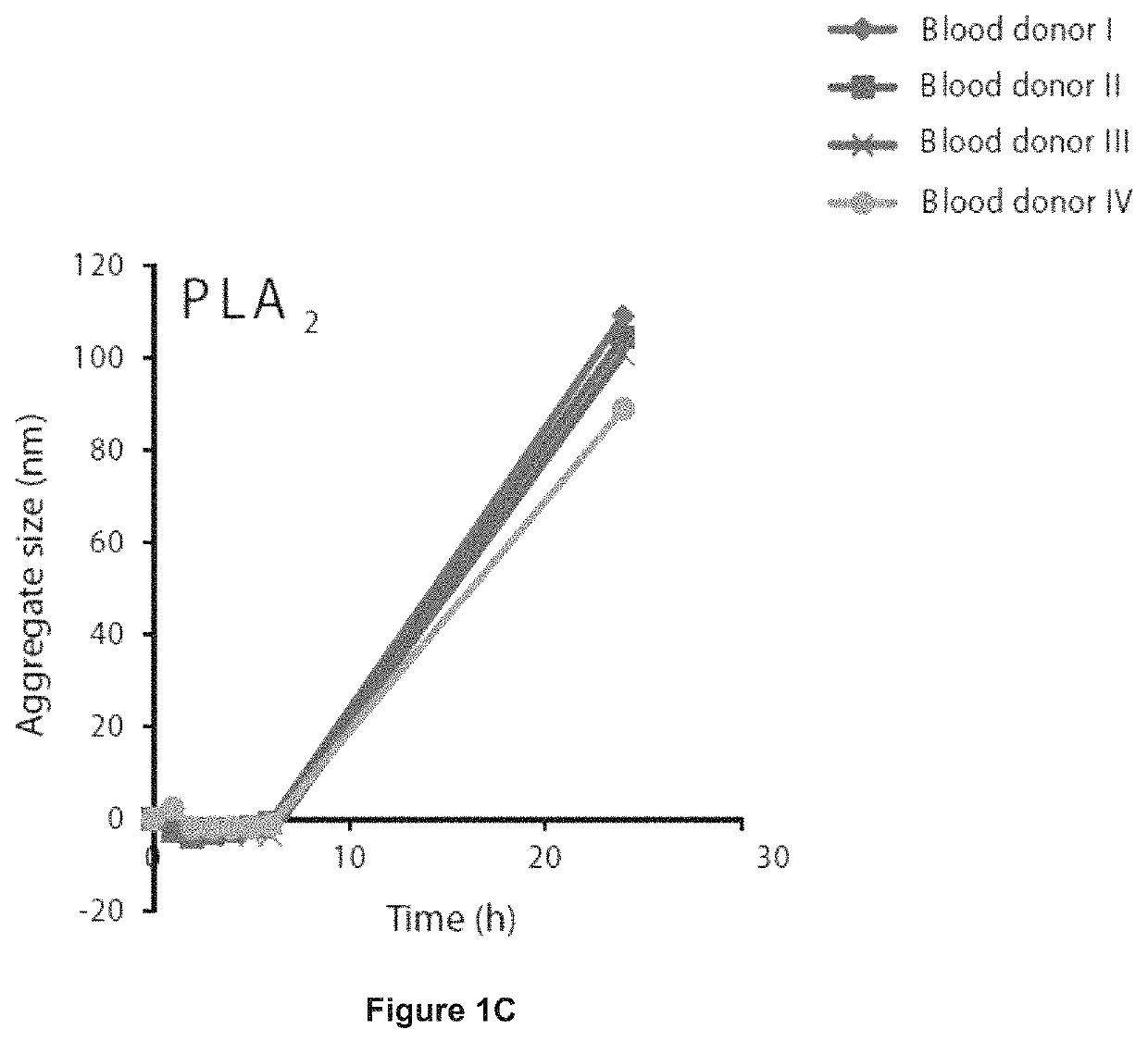Method for measuring LDL aggregation
a technology of aggregation and lipoprotein, which is applied in the field of measuring ldl aggregation, can solve the problems of too much serum cholesterol, substantial residual risk of ascvd events, and the size of lipoprotein aggregates makes their return to the circulating blood across the endothelium nearly impossibl
- Summary
- Abstract
- Description
- Claims
- Application Information
AI Technical Summary
Benefits of technology
Problems solved by technology
Method used
Image
Examples
example 1
nt of the Susceptibility of LDL to Aggregate Ex Vivo
[0136]A novel, reproducible method to quantify donor-to-donor variation in the susceptibility of LDL particles to aggregate was generated. The method is based on analysis of aggregation kinetics of LDL isolated from plasma by ultracentrifugation. LDL aggregation is induced by hrSMase and the growth of the aggregates is measured by dynamic light scattering (DLS) (FIG. 4a). Other agents to modify LDL ex vivo produced far smaller aggregates with negligible discrimination between individuals (FIGS. 1a-e).
[0137]hrSMase-based assay was used to screen LDL aggregation susceptibility in samples derived from the Finnish Health 2000 Health Examination Survey, which comprised largely healthy individuals (n=100, Table 1, FIG. 4b). A population-based generalized mixed-effect model was estimated, from which the inter-individual variation in aggregation susceptibility of LDL was calculated (FIG. 5a). These data revealed that inflection point in th...
example 2
ptibility of LDL to Aggregate Predicts Future Cardiovascular Deaths
[0139]Next the aggregation susceptibility of LDL isolated from plasma samples derived from patients with clinically diagnosed CAD was measured. The samples were from a nested case-control study (13), which had been designed using samples from the Finnish Corogene study (14). The nested case-control study included all patients who had experienced coronary death within an average follow-up of 2.5 years. Control patients were selected from the group who had no cardiovascular events during the follow-up period and they were pairwise matched based on conventional CAD risk factors, statin use, and coronary stenosis index (Table 2). The plasma samples selected for this study (n=48) were from non-diabetic males, all of whom had ≥50% coronary stenosis.
[0140]
TABLE 2Baseline characteristics of Corogene study patients assessed in this study.CharacteristicsCAD DeathStable CADNumber of patients2424Gender (male) 124 (100%)24 (100%)...
example 3
ptibility of LDL Particles to Aggregate Strongly Associates with the Particle Lipid Composition
[0143]The surface monolayer of LDL particles comprises phospholipids, unesterified cholesterol (UC), ceramides (Cer), and the major structural apolipoprotein, apoB-100 (FIG. 3a). Phosphatidylcholines (PC) are the major phospholipid class, followed by sphingomyelins (SM), and lysophosphatidylcholines (LPC). The surface also contains small amounts of other classes of phospholipids and ceramides. The particle core contains mainly cholesteryl esters (CE) and triacylglycerols (TAG). The composition of the isolated LDL particles from both studies described above was determined by quantitative mass spectrometry-based lipidomics. Volcano plots show the significant (p<0.05) correlations between LDL aggregation and the molar percentages of specific lipids of the LDL surface (FIG. 3b,c) and core (FIG. 7a,b). Several sphingolipids (SMs and various forms of Cer) correlated positively and various phosph...
PUM
| Property | Measurement | Unit |
|---|---|---|
| median size | aaaaa | aaaaa |
| temperature | aaaaa | aaaaa |
| median size | aaaaa | aaaaa |
Abstract
Description
Claims
Application Information
 Login to View More
Login to View More - R&D
- Intellectual Property
- Life Sciences
- Materials
- Tech Scout
- Unparalleled Data Quality
- Higher Quality Content
- 60% Fewer Hallucinations
Browse by: Latest US Patents, China's latest patents, Technical Efficacy Thesaurus, Application Domain, Technology Topic, Popular Technical Reports.
© 2025 PatSnap. All rights reserved.Legal|Privacy policy|Modern Slavery Act Transparency Statement|Sitemap|About US| Contact US: help@patsnap.com



